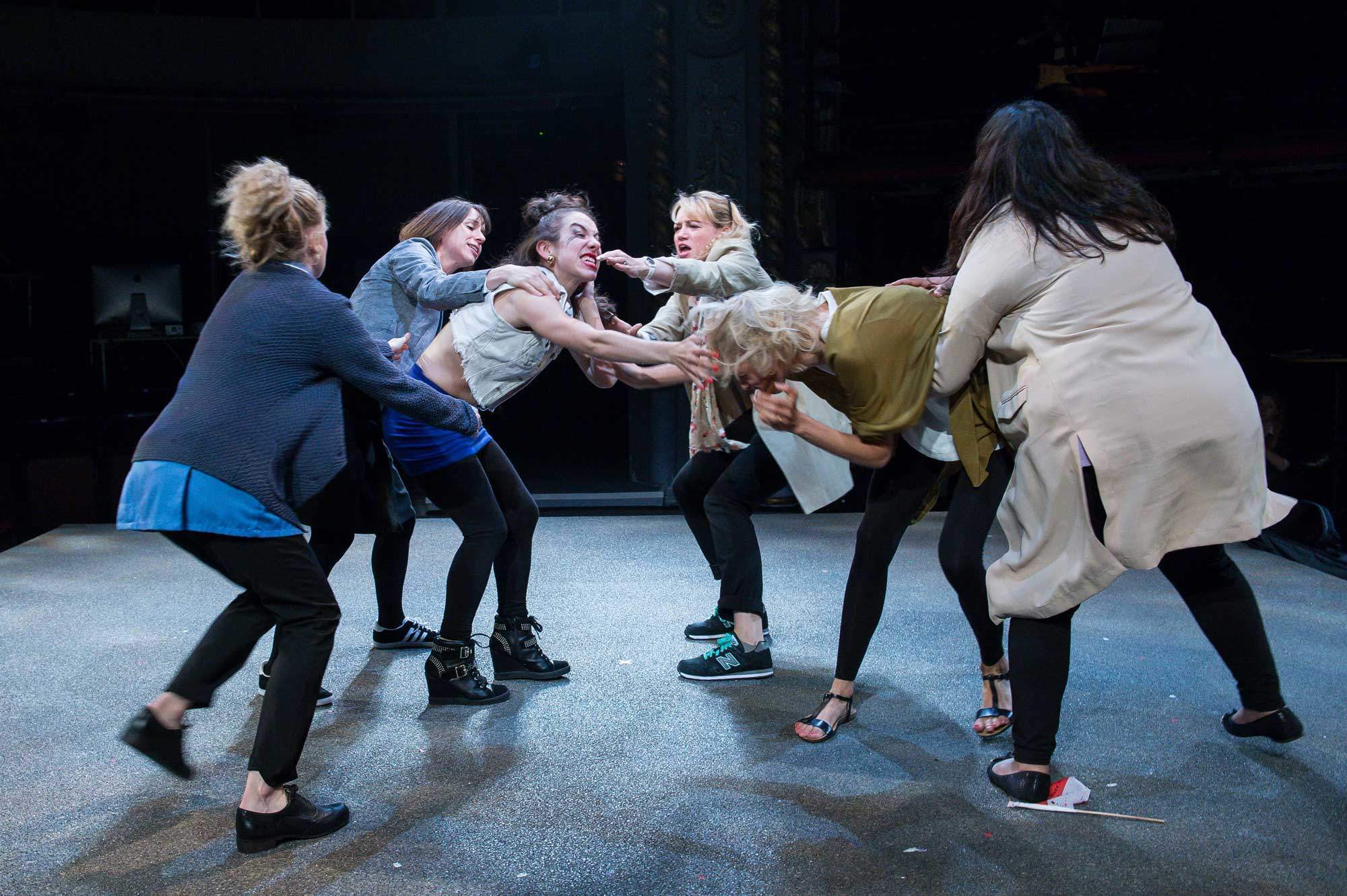
Almost exactly 11 years ago, Kevin Spacey launched his artistic directorship of the Old Vic with Cloaca, a Dutch domestic comedy so dire that its title (an avian orifice) encouraged newspapers to employ excremental metaphors for the prospects of the new regime. Subsequent triumphs with Shakespeare, David Mamet and musicals proved that the opening show can be an unreliable guide to what follows but Matthew Warchus’s first production as Spacey’s successor suggests a card thrown down. Starting with a state-of-Britain play using two-dozen actors feels like a declaration of an ambition to shadow the National Theatre.
Tamsin Oglesby, who entertainingly satirised middle-class liberals for the NT in Really Old, Like Forty Five, has delivered for the Old Vic Future Conditional, a panoramic play about the education system. David Hare once told me that – after his own 1990s trilogy of plays dramatising the Church, the law and politics – the institutions most often suggested to him for similar treatment were the BBC, the NHS and schools. He was not ignited by any of these ideas but Oglesby’s treatment of teaching feels very much in the Hare style.
In the manner of his Racing Demon or Murmuring Judges, the play moves between hierarchical levels. The main action is bracketed by scenes at Oxford University. In the opening moments, Alia (Nikki Patel), a state-school student who came to the UK as a refugee, is being interviewed by admissions tutors, who, in the penultimate scene, debate the egalitarian claims for and establishment objections against her case.
Between these encounters from higher education are interleaved three plot lines from pre-university schooling. A governmental think tank is trying to construct a new education policy, which will eventually have an impact on Mr Crane (Rob Brydon), a keen but weary teacher at a state school that may or may not be the same one where a group of mums and one dad meet at the gates, in the period when they are applying for secondary places for their offspring. The students’ fates will be shaped by parental income, postcode or the willingness of their folks to use selection-tricking cheats that include pretending to be religious, divorced or living somewhere else.
Oglesby operates commendably broad selection criteria for her characters, who include a mother who can pay for private education but thinks it is ideologically wrong and another who craves a paid place but can’t afford it. There is also a satisfying spread of résumés and views among the educational bureaucrats, who still wear their own public or private learning as prominently as a big-knotted school tie. In two very funny scenes, the parents at the school gates and the brains at the think tank start gibing and fighting like schoolkids, the joke being (with echoes of Yasmina Reza’s God of Carnage) that classroom archetypes – swot, bully, fatty, clown – endure into adulthood.
Oglesby’s characters, however, generally say exactly what they think or want, whereas surely, in the kinds of situations shown here, bigotry and ambition are spoken in code in modern England. And the pace and grip of Warchus’s production are limited by a location-hopping structure that would work better on screen, where the words of teachers, parents, pupils and theorists could be intercut to sharp and sarky effect. In theatre, with one chunk following another, it takes a long time for the piece to establish rhythm or make the separate strands play off each other, not least because Alia is the only character who crosses between plots.
Another writing choice – to show no pupils except Alia – allows the play to get around the onerous child employment rules in theatre but forces Brydon to channel the “George, don’t do that!” monologues of the late Joyce Grenfell as he addresses questions and answers to a waist-level eyeline. Brydon, who is becoming a formidable stage performer, achieves the feat with technical finesse but it sometimes feels like being asked to imagine the dogs during a production of 101 Dalmatians.
Teachers warn against judging anyone by a performance in a single test and it is still early in the year. But Warchus will hope that when his end-of-term report is written, high marks in literature (revivals of The Caretaker and The Master Builder) and music (a song-and-dance version of Groundhog Day) balance this slightly low-grade showing in the Hare Prize for Political Debate.
“Future Conditional” runs until 3 October at the Old Vic
This article appears in the 16 Sep 2015 issue of the New Statesman, Corbyn's Civil War





